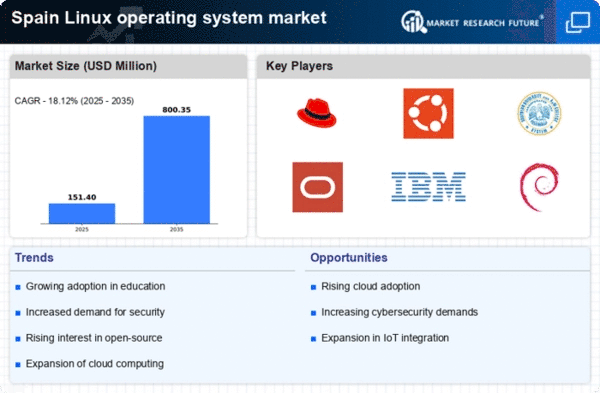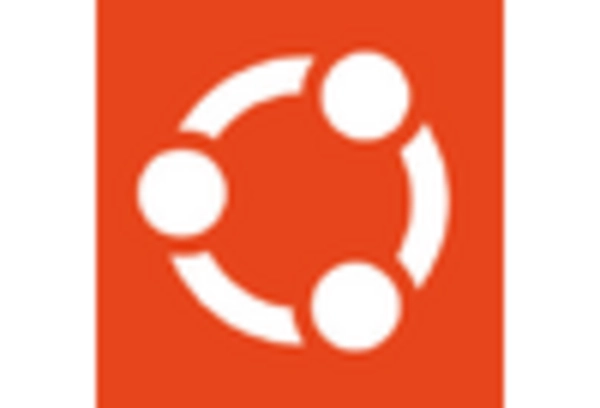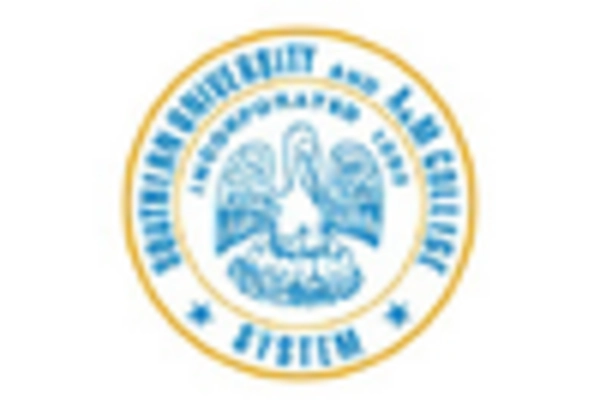Increased Focus on Cybersecurity
The growing emphasis on cybersecurity in Spain significantly impacts the linux operating-system market. With rising cyber threats, organizations are seeking robust solutions to protect their data and systems. Linux, known for its security features, is increasingly favored by businesses looking to enhance their cybersecurity posture. In 2025, it is projected that around 40% of companies in Spain will prioritize Linux-based systems for their security advantages. This trend is likely to drive the linux operating-system market as organizations invest in secure infrastructures. Additionally, the community-driven nature of Linux allows for rapid updates and patches, further enhancing its appeal in an era where cybersecurity is paramount.
Rising Interest in Cloud Computing
The shift towards cloud computing in Spain is a significant driver for the linux operating-system market. As businesses increasingly migrate to cloud environments, Linux-based systems are often the preferred choice due to their scalability and reliability. In 2025, it is estimated that over 50% of cloud services in Spain are powered by Linux, reflecting its dominance in the cloud computing landscape. This trend is likely to continue as organizations seek to leverage the benefits of cloud technology, such as cost efficiency and flexibility. Consequently, the linux operating-system market is expected to grow as more companies adopt Linux for their cloud infrastructure, fostering a robust ecosystem of cloud-based solutions.
Emergence of IoT and Edge Computing
The rise of the Internet of Things (IoT) and edge computing in Spain presents new opportunities for the linux operating-system market. As more devices become interconnected, the demand for lightweight and efficient operating systems increases. Linux, with its versatility and adaptability, is well-suited for IoT applications. In 2025, it is projected that around 35% of IoT devices in Spain will run on Linux-based systems, highlighting its relevance in this emerging sector. This trend indicates a growing recognition of Linux's capabilities in handling diverse applications, from smart home devices to industrial automation. As the IoT landscape evolves, the linux operating-system market is likely to expand, driven by the need for reliable and scalable solutions.
Growing Demand for Open Source Solutions
The linux operating-system market in Spain experiences a notable increase in demand for open source solutions. Organizations are increasingly recognizing the benefits of open source software, including cost savings and flexibility. In 2025, it is estimated that around 30% of enterprises in Spain have adopted open source solutions, with a significant portion opting for Linux-based systems. This trend is driven by the desire for customization and control over software environments, allowing businesses to tailor solutions to their specific needs. Furthermore, the transparency of open source software enhances security, which is a critical concern for many organizations. As more companies transition to open source, the linux operating-system market is likely to expand, fostering innovation and collaboration within the industry.
Government Initiatives Supporting Linux Adoption
In Spain, government initiatives play a crucial role in promoting the linux operating-system market. Various public sector projects are increasingly adopting Linux-based systems to enhance efficiency and reduce costs. The Spanish government has launched programs aimed at encouraging the use of open source software in public administration, which has led to a rise in Linux adoption. As of 2025, approximately 25% of public institutions in Spain utilize Linux operating systems, reflecting a commitment to modernizing IT infrastructure. These initiatives not only support the linux operating-system market but also aim to stimulate local software development, creating a favorable environment for innovation and growth in the industry.
















